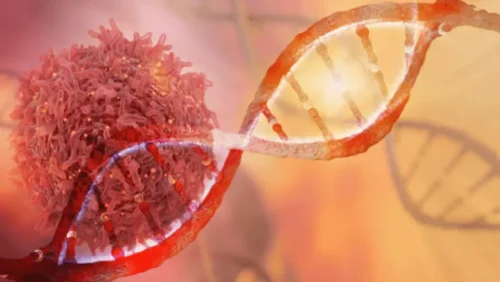
It was proposed that CBD could act as a partial agonist (Tham et al., 2019), inverse agonist or even as an antagonist (Thomas et al., 2007). A recent report suggested that CBD might act as an allosteric modulator (Martinez-Pinilla et al., 2017). Finally, CBD presents recognized antagonistic properties on GPR55 receptor (Ryberg et al., 2007; Sharir and Abood, 2010; Ibeas Bih et al., 2015). Therefore, people may consume more to feel the effects faster, leading to dangerous results. The amount of THC in marijuana has been increasing steadily over the past few decades.7 For a person who’s new to marijuana use, this may mean exposure to higher THC levels with a greater chance of a harmful reaction. Higher THC levels may explain the rise in emergency room visits involving marijuana use.
THC / Delta

While CBD may have potential benefits, it is important to remember that more research is needed to understand better the effects that cannabidiol may have and how it might best be used. Currently, there is not enough evidence to recommend CBD as a treatment for any mental health condition. Always tell your healthcare provider and pharmacist about all your medicines, including prescription, OTC, herbal, or recreational drugs. Alcohol or other recreational drugs that cause drowsiness may have increased side effects if used with CBD oil. For example, in one trial, patients admitted to the emergency room for acute back pain were given a one-time dose of 400 mg of CBD oil. In a randomized controlled trial of 88 people already taking medication for schizophrenia, 1,000 milligrams per day of CBD oil decreased positive psychotic symptoms (hallucinations or delusions).
What is the difference between CBD and CBN?
The dose of naloxone required to provoke 50% of the mice to jump off of a platform was recorded during the withdrawal, as were defecation and rearing behaviors. CBD inhibited the naloxone withdrawal–induced jumping and reduced defecation and rearing behaviors. NAC is being investigated as an anticraving agent in cannabis addiction therapy due to its regulatory role in glutamate and dopamine signaling (Samuni et al. 2013). NAC helps regulate the intra- and extracellular levels of glutamate through the cysteine-glutamate antiporter. Increased extracellular glutamate levels activate inhibitory metabotropic glutamate receptors, reducing glutamate neurotransmission (Samuni et al. 2013).
Does CBD help with drug addiction?

ICss thresholds were lowered by morphine but increased by CBD, suggesting that CBD is unlikely to exhibit abuse potential (Katsidoni et al., 2013) (Table 1). Sativa (cannabis) comprises various non- psychotomimetic and non-addictive constituents that, taken in isolation, present medical opportunities and maybe more easily employed for use in medical applications (Hurd, 2017). Cannabidiol (CBD), the most abundant phytocannabinoid of cannabis after Δ9-tetrahydrocannabinol (THC), has generated significant hope in treating drug addiction (Calpe-López et al., 2019; Chye et al., 2019; Hurd, 2017). Indeed, CBD modulates dopaminergic activity in the mesolimbic system (Murillo-Rodríguez et al., 2011) and decreases drug-induced dysregulation in the mesolimbic circuitry (Ren et al., 2009; Renard et al., 2016), and therefore may present an effective treatment against drug abuse. In summary, we have ahead of us an exciting race to discover how CBD could contribute to the area of drug addiction from a therapeutic point of view. More preclinical and clinical studies are necessary to further evaluate the role of CBD as a new therapeutic intervention for SUD.

- However, further studies should be conducted to improve our knowledge of its usefulness and to increase our understanding of the possible mechanisms involved.
- Furthermore, in its pure form, CBD has no known psychoactive effects and does not cause euphoria or intoxication.
- CBD-treated mice had a 38% reduction in spermatozoa in the epididymis tail and more head abnormalities in the sperm and cytoplasmic droplets in the flagella medial region.
- It’s regularly used as an effective treatment for skincare products due to the 24 percent CBD content.
- For acute pain, such as arthritis and nerve pain, relief from symptoms is thought to be predominantly due to CBD’s anti-inflammatory actions.
From these, delta-9-tetrahydrocannabinol (THC) is the main psychotomimetic or hallucinogenic component and the first cannabinoid to be identified and studied. First described and synthesized by Roger Adams in 1942 (Adams, 1942), and then isolated for the first time by Gaoni and Mechoulam in 1964 (Gaoni and Mechoulam, 1964), THC mediates the rewarding properties https://ecosoberhouse.com/ of cannabis (Zhang et al., 2004). Along with THC, cannabidiol (CBD) is the other most abundant phytocannabinoid in the Cannabis sativa plant. It was first synthesized by Roger Adams (Adams, 1942) and isolated by Mechoulam and Shvo in 1963 (Mechoulam et al., 1963), from which a growing interest in its pharmacological actions began to emerge.
“It’s important to start with a low dose until you know how your body will react to CBD,” said Lindsay Slowiczek, PharmD. “A wide range of CBD dosages has been tested in clinical studies, but more evidence is needed before safe and effective dose recommendations can be made for specific uses. According to a 2020 research review, the maximum dose people can tolerate orally is 3,500 milligrams per day. That said, preliminary research on CBD and its benefits are promising in relation to helping with mild to moderate health concerns and it is generally considered a safe substance. Health professionals do not consider CBD a cure-all for serious medical issues, including cancer.
- In addition, some babies and toddlers have been seriously ill after ingesting marijuana or marijuana edibles left around the house.
- Exciting new developments for enhancing CBD effects in inducing cell death and enhancing radiosensitivity of glioblastoma (GBM) cells were recently published [49].
- There is growing interest in CBD as a therapy for various conditions, but only one product currently has FDA approval.
- These include Australia, Canada, Switzerland, the United Kingdom, and the United States of America.

The role of CB1R in substance abuse disorders is controversial and may depend upon the phase of drug abuse (Galaj et al., 2020; Parker et al., 2004). After a careful review of articles, seven of those were excluded because their outcomes did not fit the purpose of this review or because they were duplicated (Supplementary Table 2 provides description of is cannabidiol addictive the excluded studies). Of the preclinical studies, five dealt with opioid, one with psychostimulant, one with opioid and psychostimulant, and two with cannabis addiction. Of the studies involving humans, three were related to cannabis, one to tobacco, and one to alcohol addiction (Supplementary Table 3 contains a detailed description of each study).
